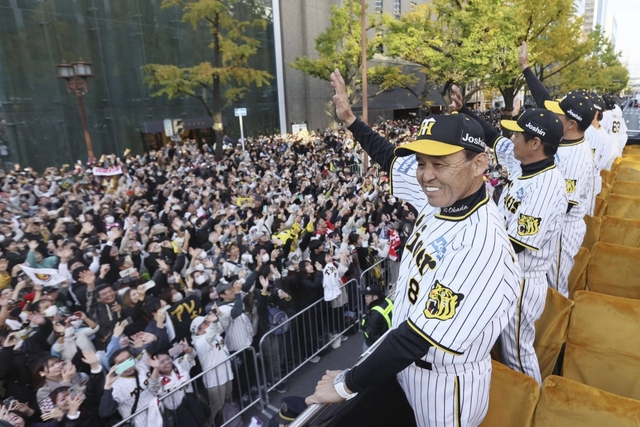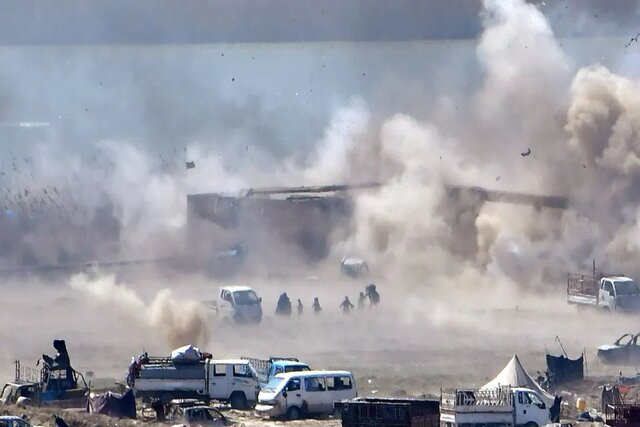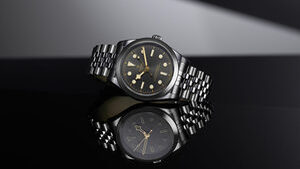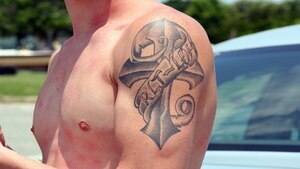The Hanshin Tigers won more than just the Japan Series this year. After team manager Akinobu Okada used the word “A.R.E.,” which derives from the Japanese word “are,” which means “that,” it became the word of the year.
“Are” started to be used instead of “win” so as not to ruin the team’s hopes of winning the league title. Later, it changed into A.R.E., which stood for “aim,” “respect,” and “empower” and became the team’s motto for the year.
People say that KFC put a curse on the team, but it seemed to work, as they won their first Japan Series in 38 years.
Okada said, “Baseball is a team sport, so you can’t do it by yourself. If we kept winning games thanks to everyone’s hard work, newspapers and media in Kansai would use the word ‘are’ every single day, which would get a lot more attention than I ever thought possible.”
“That got a lot of people excited about Kansai and the sports business in general. I’m glad I could help in any way.”
The publishing house Jiyukokuminsha puts on the U-Can Shingo Ryukogo Taisho, a buzzword event that happens every year. This year’s top buzzword is also related to baseball. In 2022, “Murakami-sama” won to honor Munetaka Murakami, a record-setting slugger for the Yakult Swallows.
In 2021, “Shōtaimu” (“Sho-Time”) and “riaru nitōryu” (“real two-way player”) won to honor Shohei Ohtani, an MLB superstar.
This year, another baseball-related word, “peppā-miru pafōmansu” (meaning “pepper-mill performance”), made it into the top 10. It was used to describe Lars Nootbaar’s celebrations with the Samurai Japan team at the World Baseball Classic.
Fans loved the outfielder for the St. Louis Cardinals, especially for the move he made to thank his friends for “grinding it out” on the field.
“Yonenburi/koedashiōen” (“first time in four years/cheering out loud”) was another sports-related word that made the top 10. This was a reference to the fact that people could scream and cheer at concerts and sporting events again after COVID-19 limits were lifted.
It was sad to pick the buzzword of the year until last year because many of the choices were pretty dark, said linguist Hideho Kindaichi, who judged the contest. This year, though, that wasn’t the case because the COVID-19 pandemic was over. There were more good news stories.
He said that this year’s top 10 words were more focused on the future. For example, “mirushō” (meaning “watching shogi”), which became famous because of the excitement surrounding shogi superstar Sota Fujii, was in the top 10. Kindaichi said he thinks Fujii will keep getting better.
Another word in the top 10—”kaerukagenshō”—meant “getting the ick” and made fun of how awkward it was for many people to return to face-to-face conversations without masks. This word refers to losing feelings for someone right away after seeing them do or say something bad.
Aside from “yami baito” (“dark part-time jobs”) and “OSO18 / āban bea” (“OSO18 / urban bears”), other words were added to the top 10 to show some of the social problems Japan had this year. The first term refers to one-time jobs that involve crimes like theft or fraud. The second term refers to more bear sightings in cities; OSO18 was the name of a bear that officials in Hokkaido had been looking for for a long time before they shot and killed it in July.
There were also terms like “chikyūfuttōka” (global boiling) and “Seisei AI” (generative AI). These terms show two major world trends. A group called “Atarashii Gakko no Ridazu / kubi furi dansu” (“Atarashii Gakko! / head-swinging dance”) also made the top 10. Their routine of shaking their heads went viral.
The comedian Tonikaku Akarui Yasumura, who is famous for the catchphrase “I’m wearing trousers!” from his signature joke, did not make the list, but he did receive a special award for his rise in popularity and international recognition after appearing on “Britain’s Got Talent.” The people in charge of the award thanked him for breaking what seemed to be a curse where comedians’ fame dropped after being nominated for the buzzword of the year award.




















